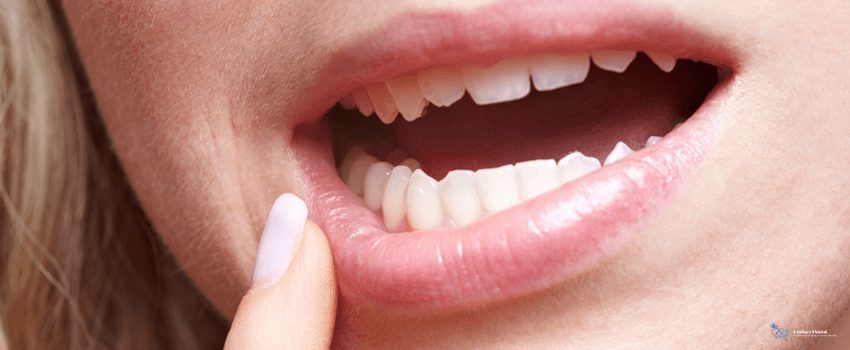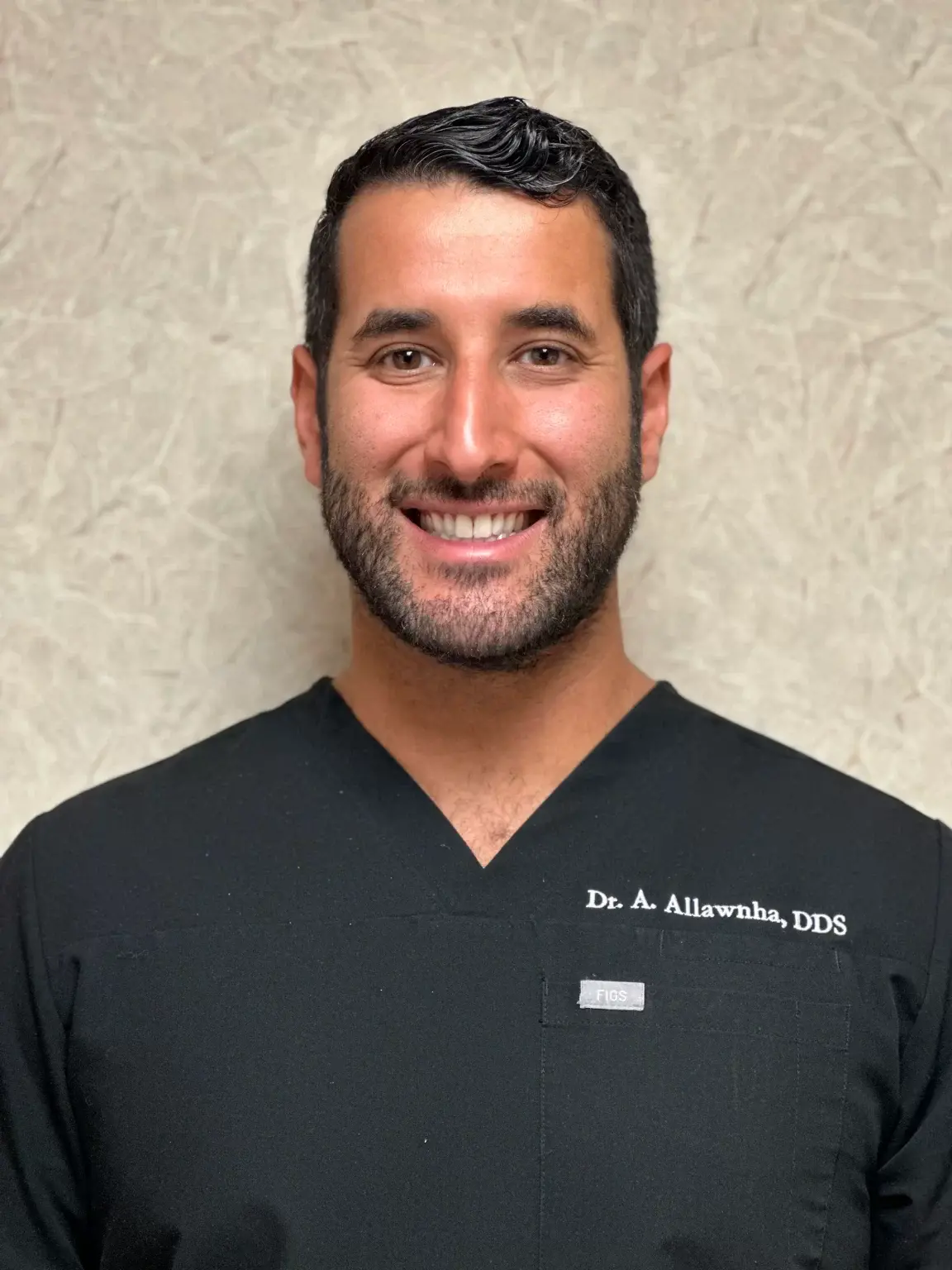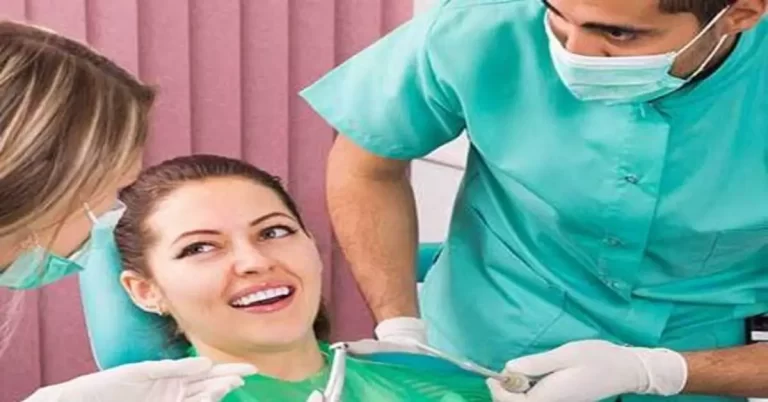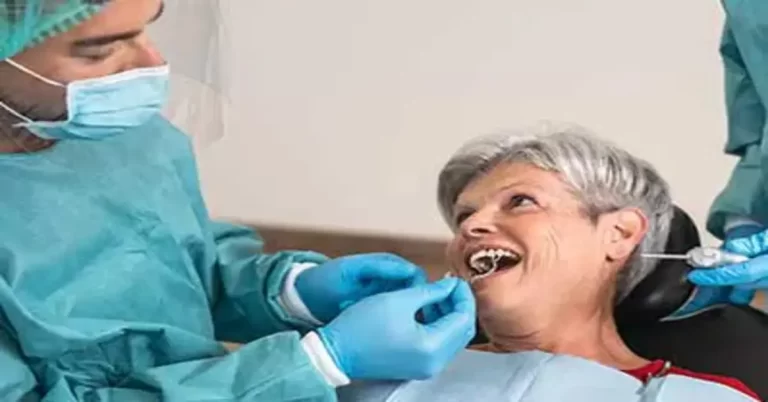Gums are the soft tissue around the teeth that keep each tooth in place. Healthy gums are vital for protecting teeth, but sometimes they can itch.
Itchy gums are often quickly resolved with good dental hygiene. However, it can also signify a more serious condition like gum disease. If it persists, it’s best to see a dentist.
Itchy Gums: Signs and Symptoms
The cause of your itchy gums influences the symptoms you may experience. For example, your itchy gums may be caused by an allergy if your gums and the roof of your mouth are the ones affected. Itchy gums accompanied by red, inflamed, or irritated gums may point to gum disease. Itchy gums that are also painful and swollen may be due to injury or a tooth abscess.
Gums that bleed briefly are normal, especially when someone is just beginning to floss. However, it’s best to have your dentist examine your gums if it bleeds regularly.
Why Are My Gums Itchy?
Finding the solution to your itchy gums is easier if you know what’s causing it. Your dentist can help you determine the cause of your symptoms. Some of the causes of itchy gums include:
Dental Devices That Don’t Fit
Problems may arise if your partials or dentures don’t fit properly. Food can get in through the gaps between the devices and your gums, which allows bacteria to grow and cause an infection, inflammation, sensitivity, itchy gums, and skin irritation.
Gingivitis
Gingivitis is the first stage of gum disease. It’s the mildest form of gum disease, often caused by plaque buildup. This stage of gum disease is more likely to have no additional complications.
Dry Mouth
Sometimes, medications or medical conditions can prevent your mouth from producing enough saliva for your tongue and gums to stay moist, which can irritate your gums and make them itch.
Gum Injuries
Trauma to the gums can cause discomfort, pain, and itching. These gum injuries may be caused by activities such as playing sports or by behaviors like teeth grinding that can cause headaches, jaw pain, and itchy gums. Vaping and e-cigarettes can also irritate the gums, making them itch.
Plaque Buildup
Plaque is a thin, sticky film containing bacteria, mucus, and food debris that coats your teeth. Plaque can lead to gum disease when it accumulates, causing gum irritation, bleeding, and itching.
Hormonal Changes
Changing hormone levels can also make your gums feel itchy. It’s common for females going through puberty, menstruation, pregnancy, or menopause to have itchy gums. These women may also experience pain, sensitivity, bleeding, and other oral symptoms.
Allergies
Your gums can also itch if you have allergies or sensitivities to foods or substances around you. These could include food, pollen, medicines, or pets. Seasonal allergies like hay fever can also cause itchy gums.
Itchy Gums: Treatment
Treatment for itchy gums is based on what’s causing them. Your dentist can provide some of these treatments, and some you can do at home.
Teeth Scaling and Root Planing
If your itchy gums are caused by gingivitis, teeth scaling and root planing can help. Teeth scaling removes tartar or plaque above or below your gum line. Plaque and tartar in these areas are not easily removed by brushing alone. Dentists often perform teeth scaling with root planing, where they make the roots of your teeth smoother. This allows the gums to reattach to the tooth.
Antihistamines
Antihistamines can stop your gums from itching if allergies cause it.
Mouth Guards
Physical activities like sports and habits like teeth grinding can injure your gums and make them itch. Wear a mouth guard if you play sports, and wear a night guard if you tend to grind your teeth while you sleep to protect your teeth and gums from injury.
Salt Water
Salt water can also provide itchy gums relief. Mix one teaspoon of salt with eight ounces of warm water. Gently swirl the salt water in your mouth and then spit it out.
Ice Cubes
Sucking on ice cubes is another itchy gums home remedy you can try. Aside from relieving your itchy gums, it also hydrates your mouth.
Proper Dental Hygiene
Good dental hygiene is essential for good oral health and preventing plaque buildup that can irritate your gums. Brush and floss your teeth daily and use a toothpaste that prevents plaque and tartar buildup. You should also use an alcohol-free antiseptic mouthwash if you have a gum infection or inflammation.
Lifestyle Changes
Smoking, vaping, and e-cigarettes can cause gum irritation and itchiness. Quitting can stop the itching. It’s also best to avoid spicy, acidic, starchy, and sugary foods that can irritate your gums.
How To Stop Itchy Gums
Itchy gums and other dental problems are easily preventable by keeping your teeth and gums healthy.
Good dental hygiene is key to preventing various health problems. Keeping teeth clean and free from plaque is a simple first step. The American Dental Association (ADA) recommends brushing your teeth twice daily for two minutes with fluoride toothpaste and flossing once daily. Mouthwash will also benefit people with sore or infected gums.
Smoking negatively impacts your oral health. Aside from making your gums itchy, it can also stain your teeth and slow down the healing process. Quitting smoking also prevents itchy gums. Studies suggest that smoking also increases the likelihood of gum disease, sometimes indicated by itchy gums.
Key Takeaway
Itchy gums have many causes, like injury, gingivitis, dry mouth, ill-fitting dentures, and more. Luckily, it’s easy to treat. You can go to the dentist for tooth scaling and root planing to clean your teeth or turn to home remedies like ice cubes and saltwater. Itchy gums are also easy to prevent with good oral hygiene and healthy lifestyle choices.
Keep your gums itch-free with Century Dental.
Our dentist in St. Pete Beach provides the best general dentistry services that help keep your teeth and gums healthy. Feel free and call us about your concerns or inquiries about our services. At Century Dental, your oral health is in good hands.





